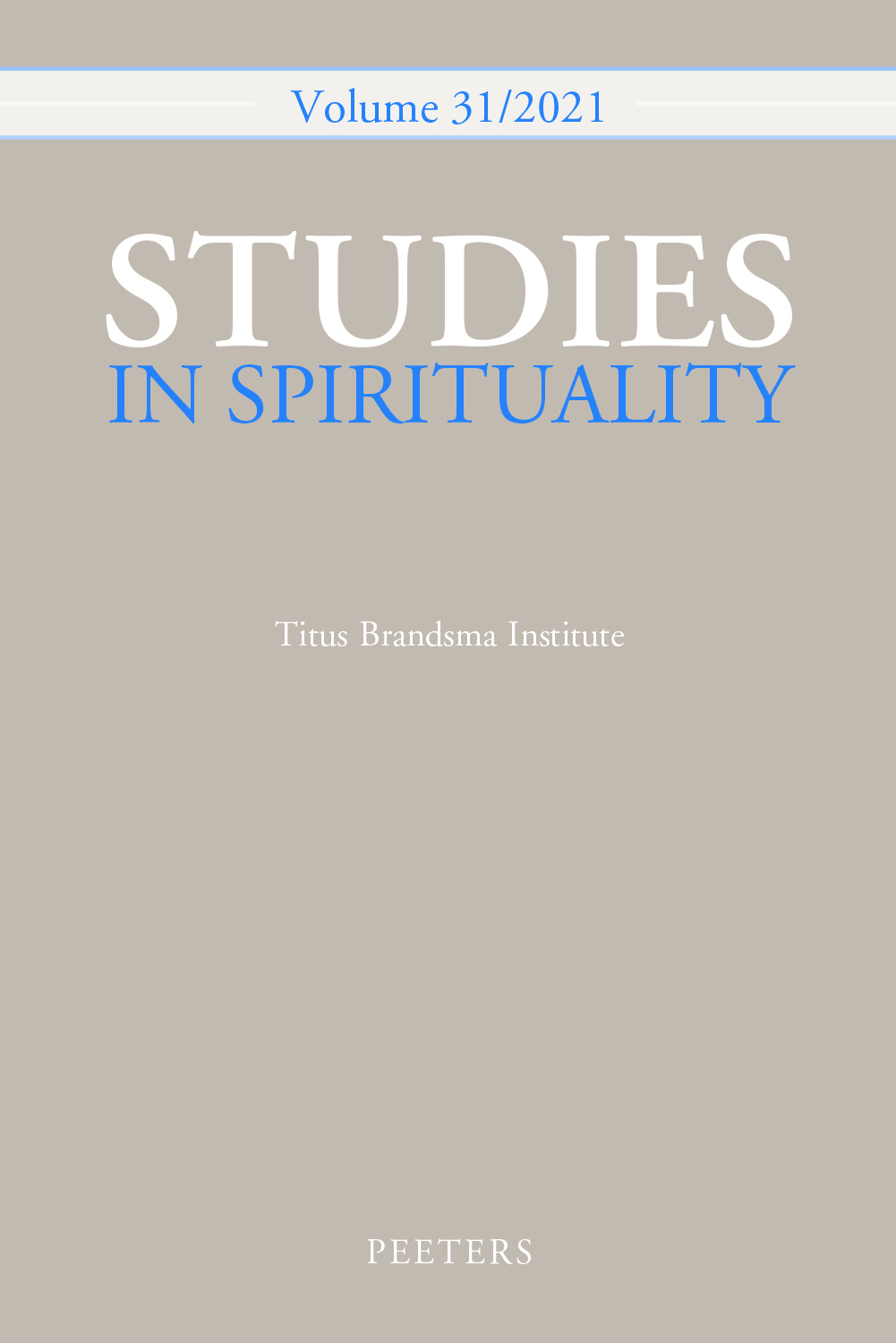 previous article in this issue previous article in this issue | next article in this issue  |

Preview first page |
Document Details : Title: Hölderlin's Friedensfeier Subtitle: The Ultimate Reconciliation of Unity and Consciousness Author(s): VAN WOEZIK, Cia Journal: Studies in Spirituality Volume: 20 Date: 2010 Pages: 239-270 DOI: 10.2143/SIS.20.0.2061151 Abstract : Friedrich Hölderlin (1770-1843) was convinced of the ultimate inadequacy of any philosophical system to grasp the unitary ground of all that is and turned to poetry. As a result, the metaphysical insights expressed in his poetry have been largely neglected in both philosophical and theological circles. Nonetheless, he has developed an interesting metaphysics of Being (Seyn), the unitary ground of all that is, that ‘falls apart’ in the arche-separation (Urtheilung), resulting in the earthly realm of judgment (Urtheil). This is the domain of thought, of consciousness, but also of individuality and loneliness. Since unity is our homeland, we long for it. At the same time we fear to return to it since unity necessarily implies lack of consciousness, hence death. Therefore human life is torn between the longing for primordial unity on the one hand and individual (self-)consciousness on the other. In rare flashes of insight (intellektuale Anschauung) a human being catches glimpses of unity that make her long and hope for ultimate peace, a situation in which justice is done both to a sense of unique, free I-hood and fundamental unity. In his poem Friedensfeier, Hölderlin develops an eschatology of Being, the unitary ground of all that is, come to full (self-)consciousness and human life restored to the peace of all peace. At the Celebration of Peace unity and consciousness are finally reconciled. |
|


